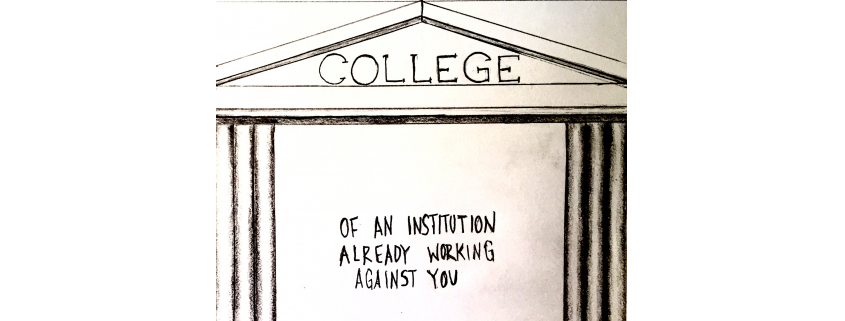COUNTERPOINT: Common App alternative is just a smokescreen to hide educational inequities
When scores of colleges across the country — known as the Coalition for College Access, Affordability and Success — announced the adoption of a website and set of online tools as an alternative to the now-pervasive Common Application, many equity advocates endorsed the deal as a groundbreaking new plan to increase college accessibility for underprivileged youth. And it’s not hard to see why — the system, which would make essential admissions information such as financial aid and application deadlines available to high school students as early as ninth grade, seems to offer a new level of support for students who may not find it elsewhere. And maybe, some proponents profess, the CCA’s new system could finally eradicate the inequity present at every level of a college admissions process which systematically disadvantages poor and minority students.
Well, it’s time for these pure-hearted equity advocates to wake up from their delusional fantasy. A new application process will not erase the institutional education disparity, which births the inequitable access to, and success in, higher education. Moreover, its selectivity among high schools indicates that it actually advances educational discrepancies overall.
The new college application process functions as a political smokescreen to conceal the systemic inequities that accumulate in higher education. These inequities start even before students enter the education system — children from low-income families are more likely to be food-insecure, less likely to be in center-based childcare and more likely to become depressed. These factors adversely affect students’ educational performance, and as students enter K-12 education, disparities in educational quality widen. Schools in low-income areas suffer from a severe lack of funds, since more than half of schools’ funding sources rely on local property taxes, according to the Association for Supervision and Curriculum Development. Efforts to cut costs result in lower quality teachers, more students in classrooms and less breadth or depth of classes offered. These attributes lead to growing disengagement with class curricula. Moreover, in a phenomenon known as the school-to-prison pipeline, low-income and black and brown schools increasingly outsource discipline procedures to local police due to lack of funds. These increase suspension and expulsion rates and lead to a dropout rate that is six times higher than higher-income youth, according to the International Committee of the Fourth International — further disengaging lower income youth and placing them out of a climate of academic success.
So, when these students succeed in spite of the institutional barriers, one would hope that the college admissions process would be equitable. But no — application success relies largely on test scores, which are more of an indicator of socioeconomic status than actual intelligence, and GPA, which is often boosted via Advanced Placement classes that are offered in disproportionately affluent school districts. Moreover, the booming college admissions industry offers specified college admissions counselors, professional essay-writing help and test prep boot camps to students who can afford to shell out the often-thousands of dollars to help maximize their changes in the application process.
To argue that a single application offering students more information on financial aid and application requirements will eliminate these overwhelming barriers for low-income students, then, is a slap in the face to efforts to create an actually equitable process.
It’s not just that the CCA’s efforts aren’t enough to advance opportunities for low-income students. It is actively misleading — considering that the CCA is composed of schools with six-year graduation rates of at least 70 percent, it’s not actually representative of all types of schools, and they may all not be in the reach of low-income students who would not otherwise apply to college. Therefore, it’s much more likely to be good PR for the universities who participate in CCA than an actual incentive to provide students with enough resources to apply to college without external support.
It’s easy to see that the CCA’s new platform will not solve the problems regarding access to higher education, and it’s likely to be an opportunity to profess progress to college access. But whether it will alleviate even some of the burden felt by poor and minority youth trying to apply to college is a much more difficult question to answer. The CCA’s new platform is an improvement over the Common Application — but any platform is an improvement over the Common App. Policymakers need to begin to address the inequities that occur far, far before students encounter the application process in order to make sure that students can even get there.
Sonali Seth is a sophomore majoring in political science and policy, planning, and development. She is also the editorial director of the Daily Trojan. “Point/Counterpoint” runs Mondays.

